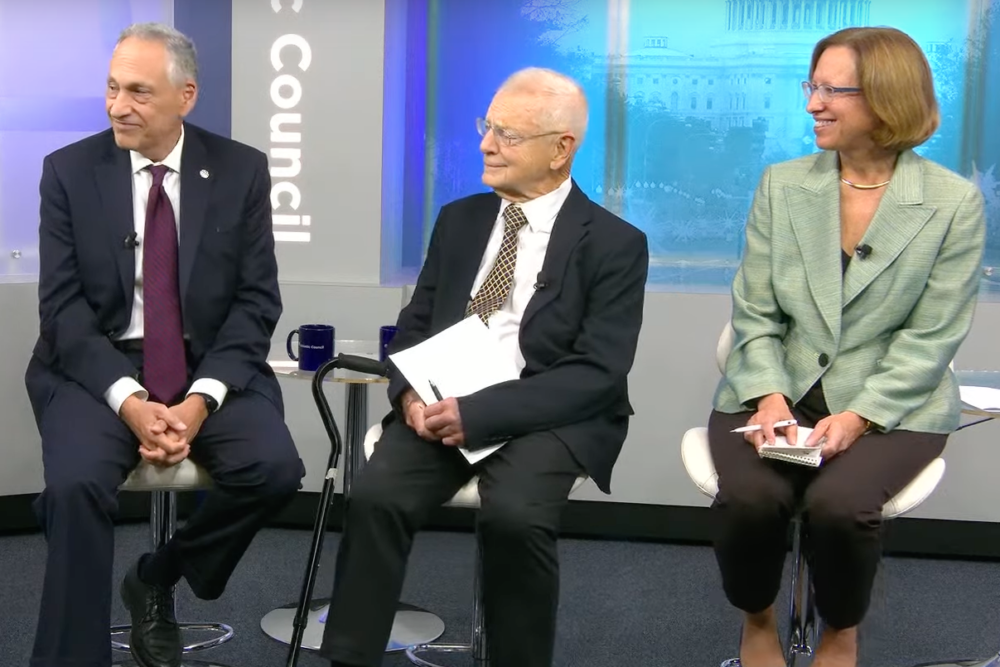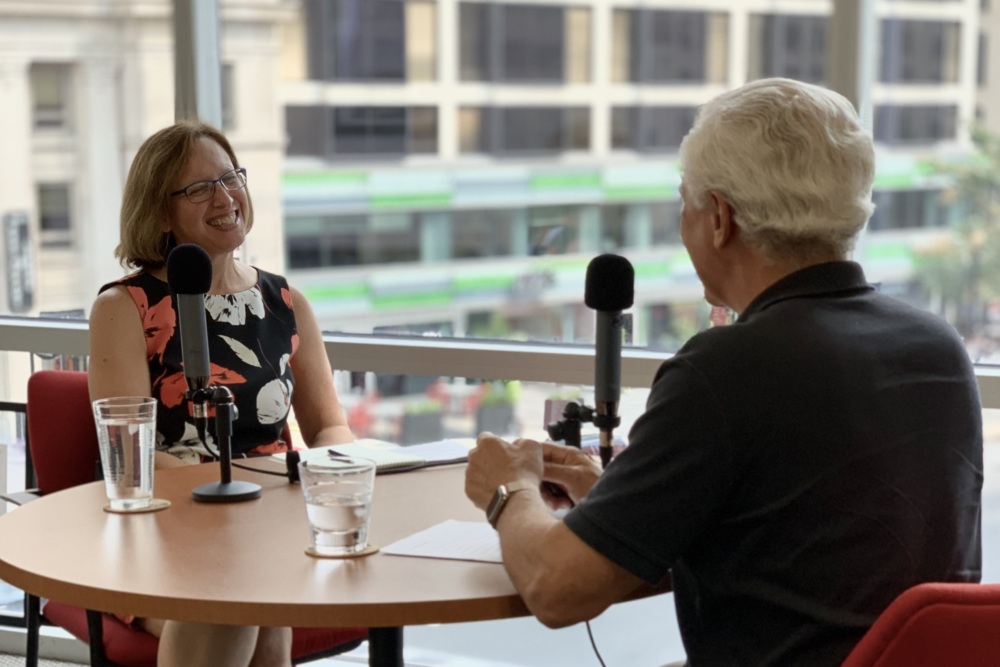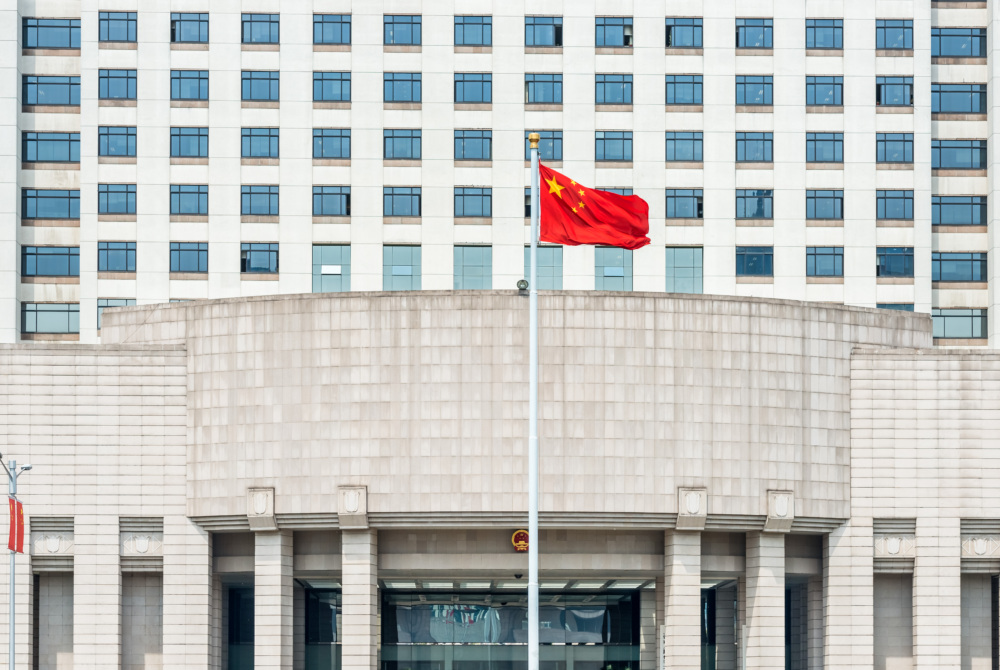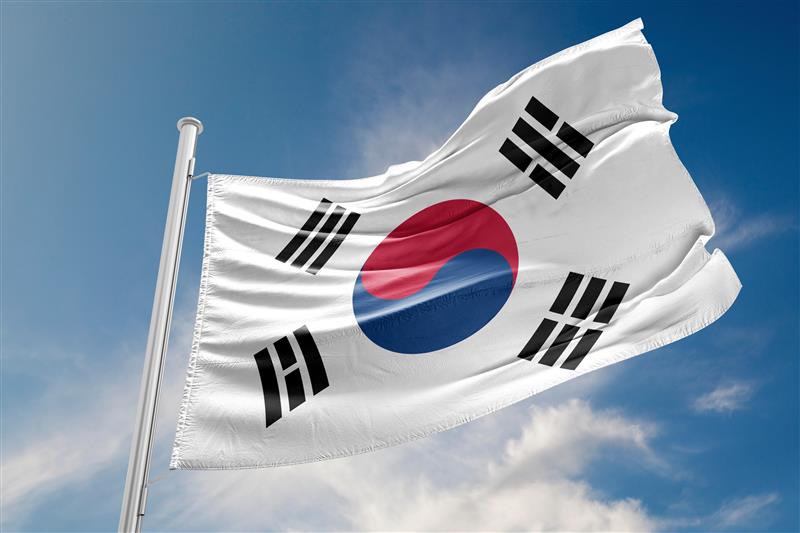The scope of the Global Nuclear Policy Program (GNPP) at NTI is vast: Reducing reliance on nuclear weapons, preventing their use and their spread, and ultimately ending them as a threat to the world. Lynn Rusten isn’t daunted. She brings deep expertise in nuclear arms control, nonproliferation, and national security policy from a host of senior government positions, including high-level posts in the White House, at the State Department, and in Congress. Prior to joining NTI in 2017, Rusten served during the Obama administration as a senior director on the White House National Security Council staff and also at the Department of State leading the interagency backstopping process in support of the negotiation and ratification of the New START Treaty between the United States and Russia. Rose Gottemoeller, chief negotiator for the treaty, at a recent NTI webinar called working with Rusten “absolutely fantastic.”
Over the course of this year, as NTI marks its 20th anniversary, our experts will share some reflections on two decades of working to build a safer world—accomplishments and challenges, lessons learned along the way, visions for the future, and more. Today, we hear from GNPP Vice President Rusten, who also was a consultant to NTI in 2009 after serving as a senior professional staff member on the Senate Armed Services Committee.
Before NTI, much of your career was spent in senior government posts, working on many of the same issues we address. Why did you make the jump to NTI?
I have spent a lot of my career in government, and I had a few stints outside, too, and also on the Hill, which is government of course, but different from working in the executive branch. At the end of the Obama administration, I was ready to leave government and do the kind of work that we do from the outside. It’s an opportunity to advance the issues in a different way and also a way to recharge your intellectual batteries and have the time to think about more than the four corners of your desk and today’s or tomorrow’s crisis. It offers a chance to do some really creative work. And it’s been exciting to think about the opportunities that we have now to make significant progress on our issues given the new administration. I think it’s not a secret that some of the approaches of the Trump administration really weren’t conducive to advancing nuclear risk reduction and arms control. And of course, there are other factors in the world beyond just the policies of that administration. Obviously, there are challenges with other countries that have nuclear weapons, including Russia and China. But it was an environment in which some of the traditional arms control tools were continuing to erode, and at the same time tensions were rising between states with nuclear weapons.
And in general, there was a sense that we were going backward globally, not making progress toward reducing nuclear weapons and reducing the risks of their use. And so I think now with a change of administration, and a president who has spent a lot of time on these issues, and made some campaign commitments, in terms of this issue set, it’s an exciting opportunity to see if we can help generate some ideas from the outside that might get picked up and used inside. So, that’s one of the things that’s exciting about the moment we’re in right now.
Has it surprised you to find that a small NGO can make a big impact?
I’ve been familiar with NTI really since its inception, and I did do a short stint here for about six months, in 2009 after I had left the Hill and before I went to work for the Obama administration, and so I certainly was familiar with NTI and the great things it does. But I have to say that being here has given me an even greater appreciation for what it does across the board, in the biosecurity space and in some of the other nuclear and technology areas that I’m interested in, but not personally responsible for. And of course, the organization continues to change and grow over time as the people who are here change, our leadership has changed, and the issues that the world is confronting change. It is impressive that NTI is so impactful. It’s really like the little engine that could with a relatively small staff and, although we have a significant budget for an NGO, in the scheme of things, it’s still a small budget. We are able to leverage ideas and relationships and partnerships to get big things done.
Your team’s mission is huge! Where do you see the greatest opportunities for progress?
I think of our mission as being in two baskets. One is the more near-term basket, addressing the world as it is today and exploring how we can make progress towards reducing nuclear weapons and the risk that they could be used. So, we consider questions like: what should a next arms control agreement with Russia look like? What policies should the U.S. government pursue to advance the goal of nuclear non-proliferation? How do we deal with the impact of new technology on nuclear risks, including cyber risks to nuclear weapons and command and control systems? And specifically, how do you address those risks which don’t lend themselves to traditional arms-control agreements, for instance, cyber threats and activities in space? And, of course, an increasingly important issue is how do we move beyond a bilateral arms reduction and arms control process with Russia to a multilateral one, to include China, which is a growing concern in terms of its nuclear weapons programs. So, these are the near-term questions we work to answer to impact policy over the next five, 10, 15 years to make progress down the road on reducing and eliminating nuclear risks.
The second basket is even longer-term as we think about how to advance the goal of ultimately eliminating nuclear weapons? And what does that mean, in a concrete sense? What are the structures that you need in place for verification and for monitoring the use of nuclear power for civilian use, for nuclear energy, so that the nuclear know-how isn’t transferred to a military or covert program aimed at building a nuclear weapon. This is what we called “the vision and the steps”—we promote the vision of a world without nuclear weapons, but we understand that we have to build the practical steps to get there. So, we really work at both ends of the problem.
Where do you think NTI has had the greatest impact?
NTI has had a big impact in so many ways. Sometimes it’s about developing ideas and then seeding those ideas so others can take them up, because at the end of the day nuclear policy, in particular, is the province of governments. I’ll give you an example. A few years ago, Senator Nunn co-wrote an op-ed with Senator Lugar, both former senators at the time, about applying the concept of Cooperative Threat Reduction (CTR) to the denuclearization of North Korea. CTR was a concept they developed when the Soviet Union collapsed and nuclear weapons and materials, along with other weapons of mass destruction, were scattered across the former Soviet states—a huge area of the world. The idea manifested in the United States, and later other countries as well, giving assistance to Russia and the former Soviet states to prevent the weapons and materials from falling into the hands of terrorists, non-state actors, other countries.
Fast-forward 30 years later, and they wrote an op-ed suggesting that the CTR concept could have application in the case of denuclearization negotiations with North Korea, and they recommended that policymakers consider it. It was an original idea and it took hold. At NTI, we formed a high-level expert working group and came out with a substantial study of the idea about a year and a half later. But that was just the beginning—and by the way, the Trump administration and other countries in the Asia Pacific and Europe were very interested in this idea. Other think tanks in Washington and in the Asia Pacific, and experts and organizations began to further explore this idea and develop it in more depth—that work continues to this day. Of course, the most important step will be if negotiations get going with North Korea, between our country and North Korea and involving other countries in the region, to the point where they could consider this concept and see if they can use it. That hasn’t happened yet, but this is just one example of how we have a powerful ability to get an idea out there and get traction with it.
I can give you 10 more examples from across NTI, including the development of the international low-enriched uranium bank that we helped seed and fund at the International Atomic Energy Agency, the verification work that we’ve been doing with the international community. There are just so many examples of where we have worked with partners, both in governments and outside experts, as an incubator to generate ideas and have them get traction with those who can implement them.
You’re also responsible for Congressional outreach at NTI. This is another big task, given the lack of institutional knowledge on our issues and the increase in partisanship on Capitol Hill.
This is hugely important. NTI has been focused in recent years on how important it is to increase what we call “nuclear literacy” on Capitol Hill. Back in the 1990s, many senators, including Senator Nunn, of course, were really very knowledgeable and current about nuclear risks and nuclear arms control. And frankly, there also was much more of bipartisan understanding of arms control as a tool that can advance national security alongside diplomacy and defense. Today, we see a real loss of knowledge about nuclear risks and appreciation for the diplomatic tools including arms control that can help mitigate them, so we spend a fair amount of time working to educate members of Congress and staff about the issues and what they can do to advance both public understanding and congressional oversight of the executive branch, to encourage approaching these issues in a bipartisan way, and to promote congressional-executive cooperation on reducing nuclear risks. Just like it shouldn’t be a partisan issue to prevent or prepare for the next pandemic, there should be a bipartisan interest in making sure that nuclear weapons aren’t used.




